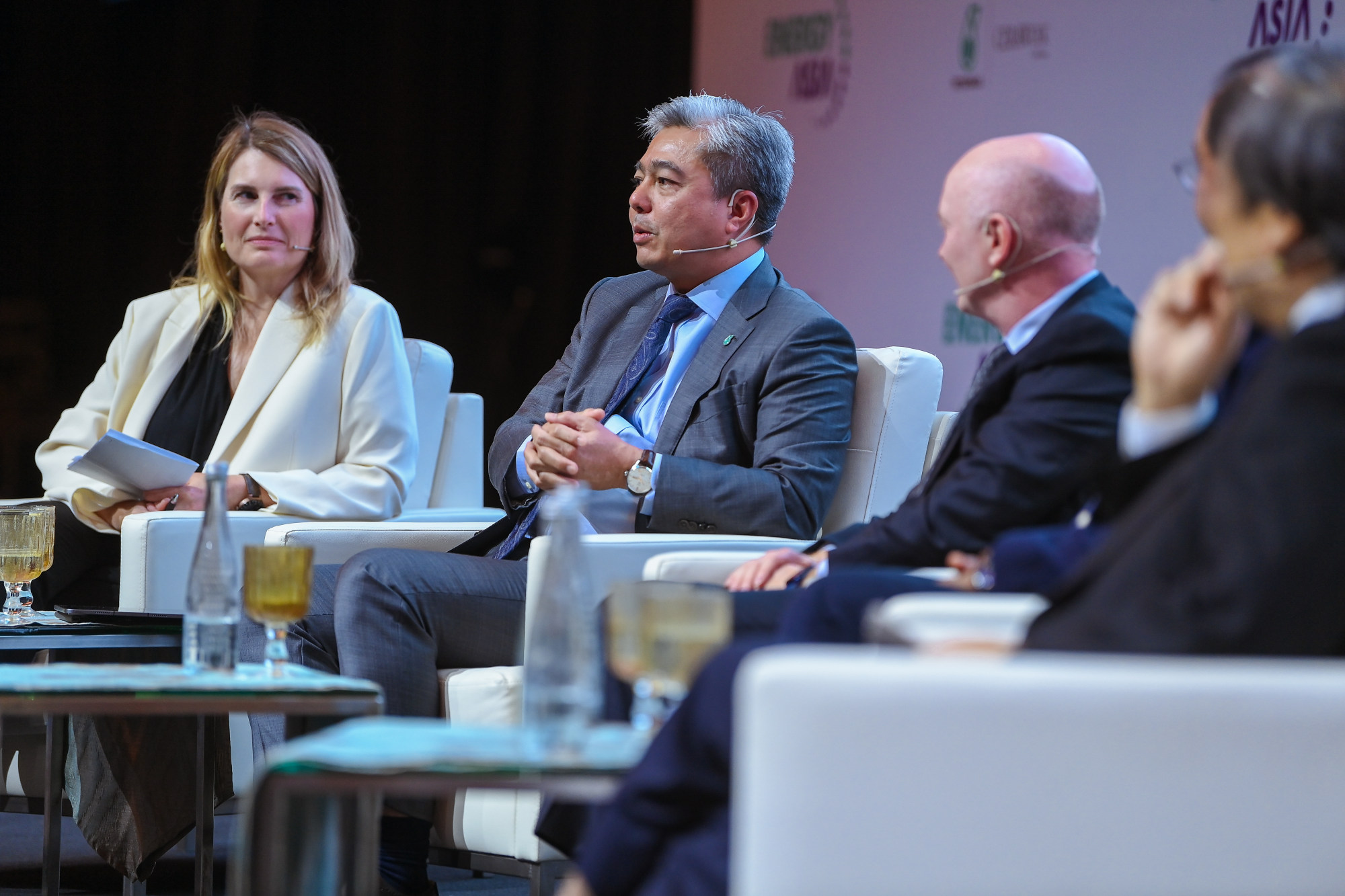[Sponsored article]
The call to action for an energy transition – referring to the shift from fossil fuels such as oil, natural gas and coal to renewable sources like wind and solar power for energy production and consumption – is getting increasingly louder in Asia, and for very good reason.
With a total population of 4.2 billion people, the region is still growing fast, particularly in terms of energy demand, according to Datuk Adif Zulkifli, executive vice-president and CEO of the upstream business for the Malaysian energy group Petronas. “[By 2030,] more than 50 per cent of the world’s GDP is centred in Asia. In order for us to develop, we need energy that is secure and affordable,” he explained.
That makes it all the more critical for Asia to reduce energy-related greenhouse gas emissions. Speaking to the Post from the inaugural Energy Asia conference, which took place in June in Kuala Lumpur, Malaysia, Adif also emphasised that achieving a just energy transition will require a carefully planned transformation tailored to the characteristics of each country in the region.
“The reality is that different countries have different priorities in their economic development,” he said, pointing to the ongoing “energy trilemma” of balancing affordability, security and sustainability. “Certain parts of Asia are well-developed and probably more advanced when it comes to the energy transition, while other parts are still grappling with access to affordable energy.”

Adif, who has been with Petronas for more than 30 years, noted that the company recognises the increased demand for cleaner energy sources and low-emission operations. “So, that is exactly what we are going to do moving forward,” he said. For example, Petronas is allocating 20 per cent of its capital expenditure through to 2026 for decarbonisation projects and the development of clean energy solutions, as part of the company’s aspiration to achieve net-zero emissions by 2050.
As CEO of Petronas’ upstream business – which involves exploring, developing and extracting oil and gas resources – Adif is currently focusing on lowering emissions from operational processes such as venting and flaring, in order to make a crucial contribution to the company’s net-zero goal. “We are aiming to reduce our emissions in totality by about 25 per cent by 2030,” he said.

